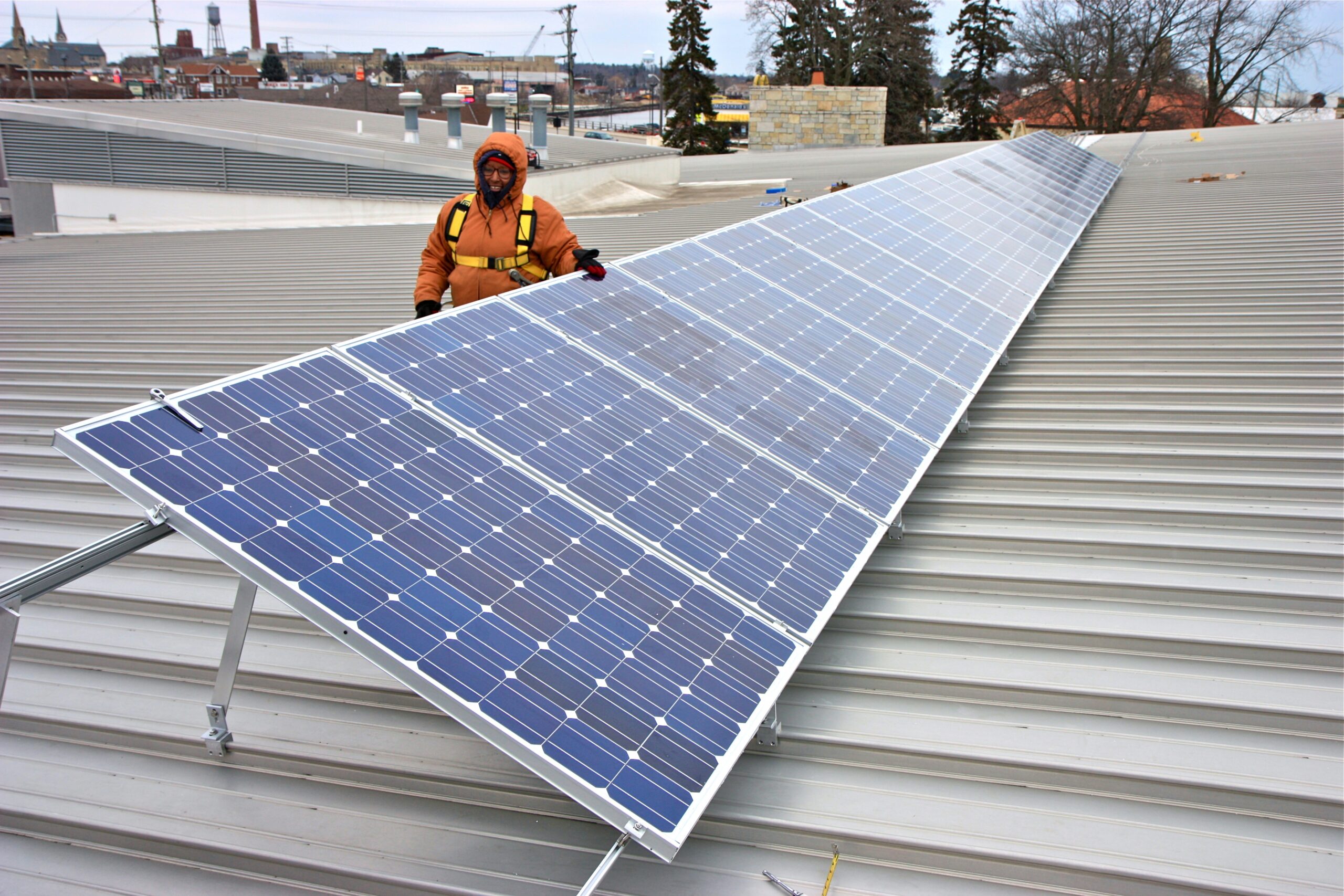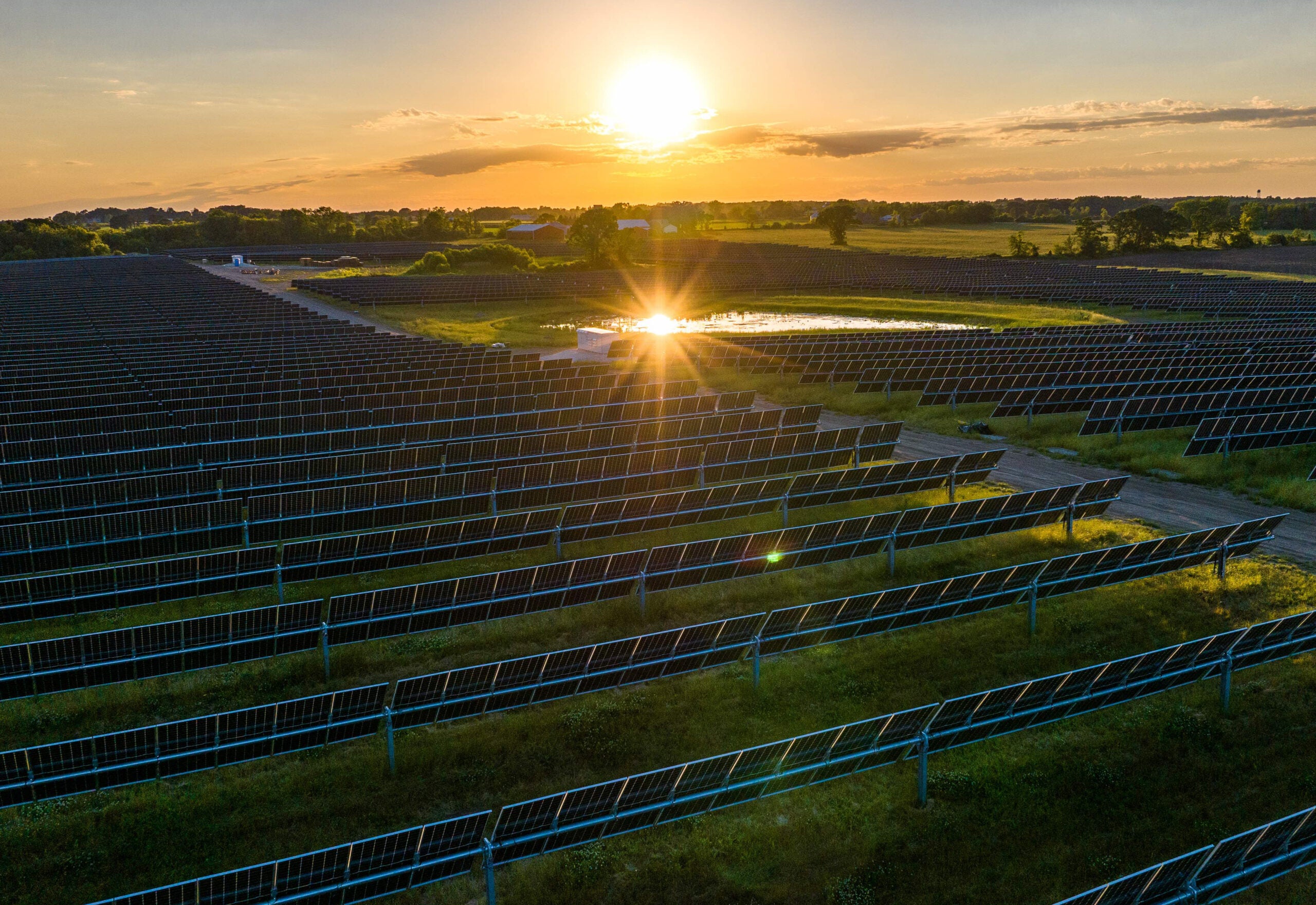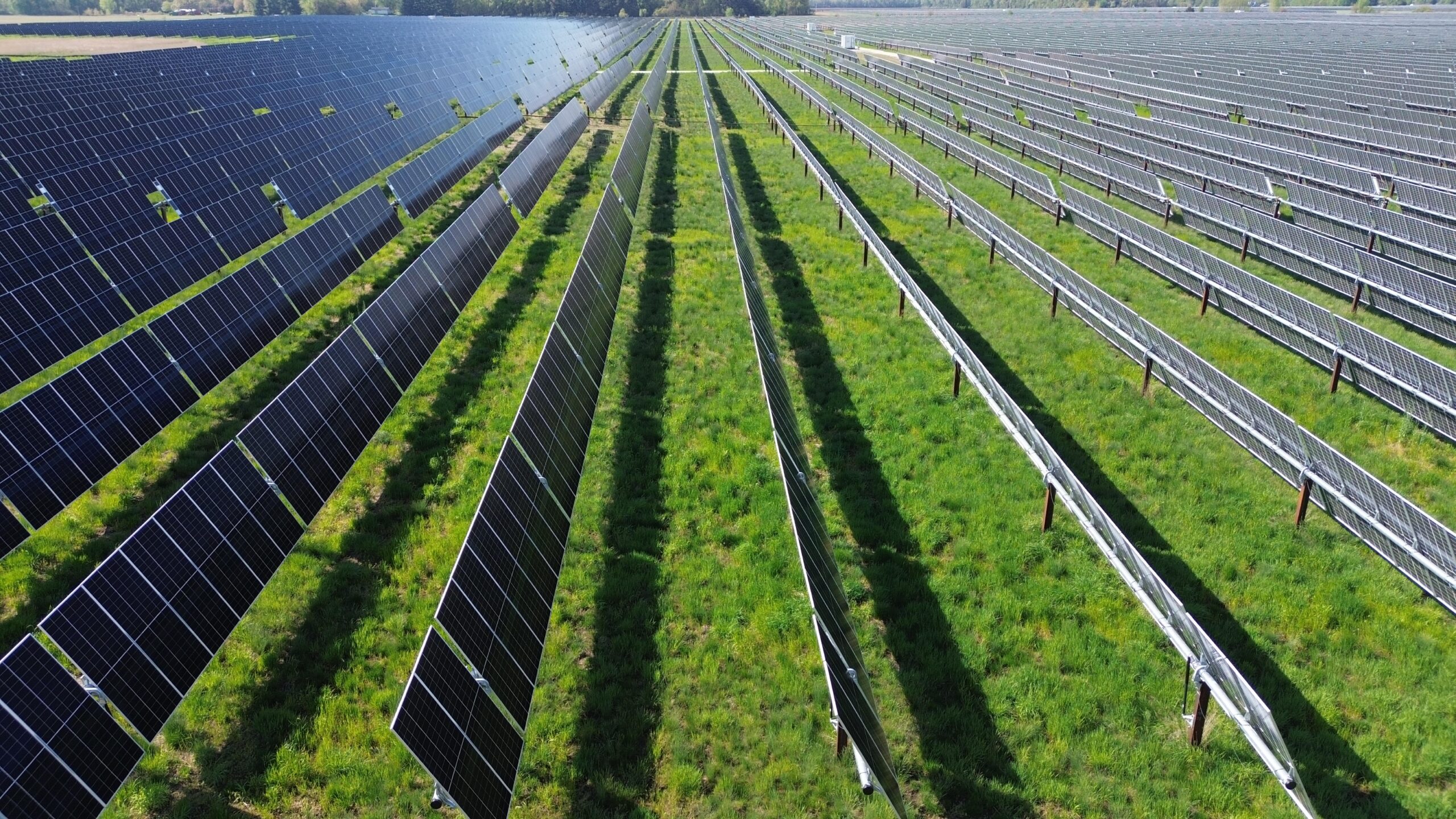Wisconsin has bucked a national trend in solar energy, growing its number of jobs in the renewable field by 3 percent last year, while nationwide jobs decreased by the same amount.
In 2018, Wisconsin had 3,007 solar jobs, compared with 2,921 the previous year, according to the latest report by The Solar Foundation, a national nonprofit based in Washington.
In addition to Wisconsin, 28 other states also gained jobs in the solar industry. Despite that, the nation lost 8,000 jobs, or 3.2 percent, in 2018, largely due to the Trump administration’s tariff on solar panel components and uncertainty about state policy, according to the report.
Stay informed on the latest news
Sign up for WPR’s email newsletter.
Nationally, about two-thirds of these opportunities relate to installation and project development, while about 14 percent relate to manufacturing.
Wisconsin is “right there in the middle of the pack,” said Ed Gilliland, senior director of The Solar Foundation.
The state ranks 24th in the nation for total solar jobs and 26th for solar jobs per capita.
But it also lags behind its neighbors. Illinois saw some of the largest gains in solar employment in 2018, while Minnesota has consistently outpaced Wisconsin.
“Wisconsin doesn’t have aggressive renewable portfolio standards,” said Gilliland, though he did credit Wisconsin’s net metering system, which allows for consumers to return excess electricity to the grid.
Illinois, meanwhile, recently enacted new policy and renewable targets, which Gilliland said are paying off in solar job growth.
A change in Wisconsin’s governorship might lead to greater gains in renewable energy going forward, however. Gov. Tony Evers and Lt. Gov. Mandela Barnes have stated their support for renewables, including wind and solar.
“We could get into manufacturing as well as installation. The possibilities are endless as far as job growth with wind and solar,” Barnes told Wisconsin Public Radio in December. “We’re missing out by not making the right investments where they should be.”
Former Gov. Scott Walker previously opposed increasing Wisconsin’s renewable portfolio standard.
Evers supplied a statement to The Solar Foundation’s press release:
“We are proud of the solar job growth in Wisconsin. It solidifies our commitment to getting our state on track for a future driven by renewable energy that will make Wisconsin a stronger, better place to live, work, and play. We look forward to continuing our promise to build a clean economy that incentivizes energy innovation, diversifies Wisconsin jobs and energy sources, and promotes efficiency, affordability, and accessibility in clean energy production.”
Last year marks at least the third year in a row that solar jobs in Wisconsin have grown. In 2016, Wisconsin’s solar jobs jumped by 45 percent from 2015. Gilliland called 2016 an “explosive year” nationally, due to an anticipated expiration of a federal tax credit. The nation saw a 25 percent growth in solar jobs. Nationwide, employment numbers had climbed steadily before that boom, and dropped in both 2017 and 2018.
Kim Griffin is one of those Wisconsin workers who recently joined the industry. She’s conducted site assessments for PhotoVoltaic Systems, a solar company based in central Wisconsin, for about a year and a half.
Before that, Griffin was a teacher. She says the job became too stressful after Walker cut collective bargaining and salaries for public employees, so after nearly a decade of teaching, she needed to find something else.
“You spend so many hours of your day working that I wanted to do something worthwhile,” said Griffin. “So I looked into renewable energy.”
Griffin ultimately got an associate’s degree in renewable energy from Mid-State Technical College and soon was working in the field.
She says it allows her to put her teaching skills to work.
“There’s a lot of people who know solar in a very broad idea of yes, it’s creating electricity, but when you get down to actually installing it, you want to know what it’s actually doing in your house.”
Griffin also says that working in solar offers a good future, despite the national dip, which she attributes to politics.
“I think in the long-run, you’re going to see solar pick up because it just makes more sense.”
Wisconsin Public Radio, © Copyright 2025, Board of Regents of the University of Wisconsin System and Wisconsin Educational Communications Board.





